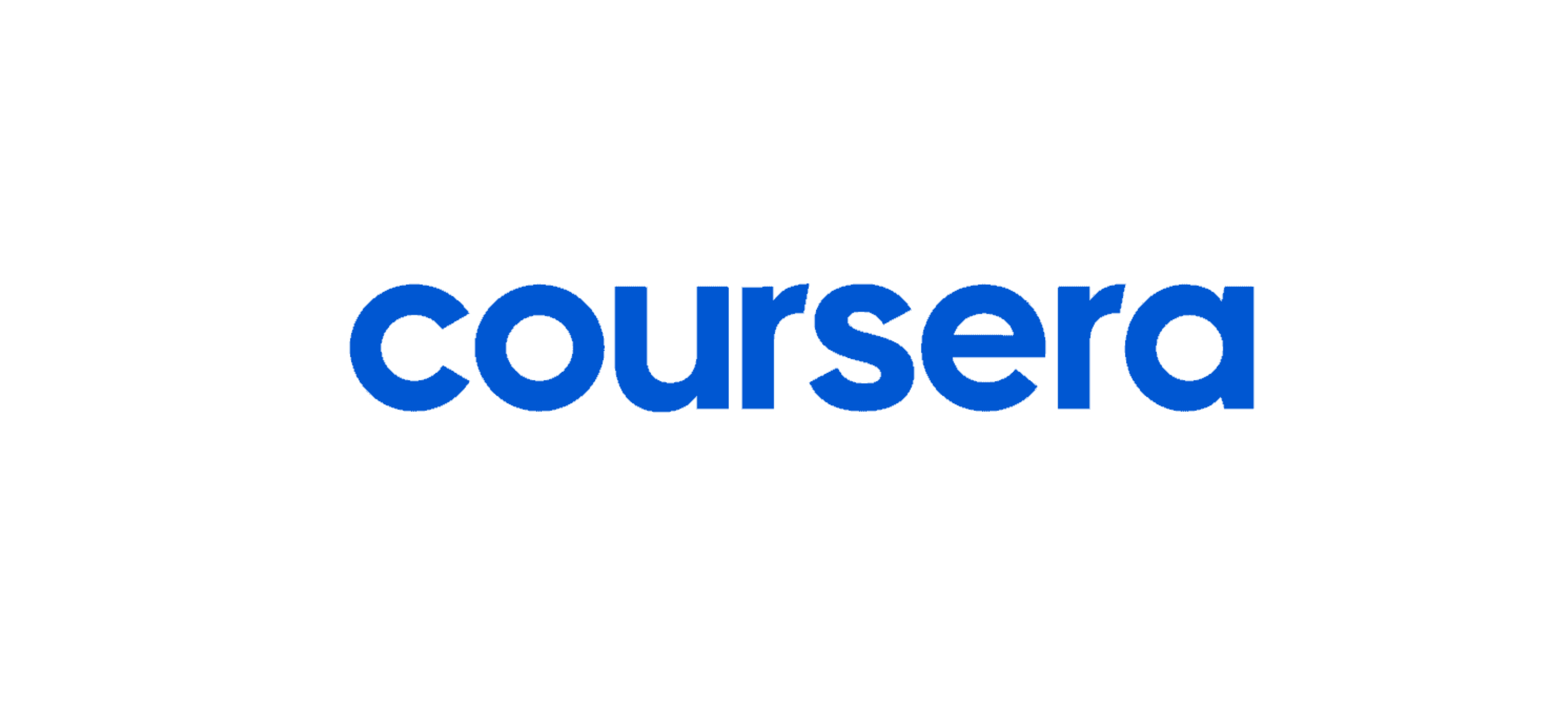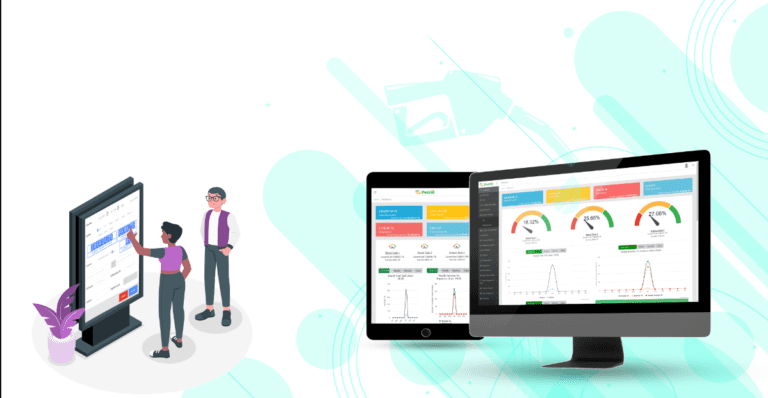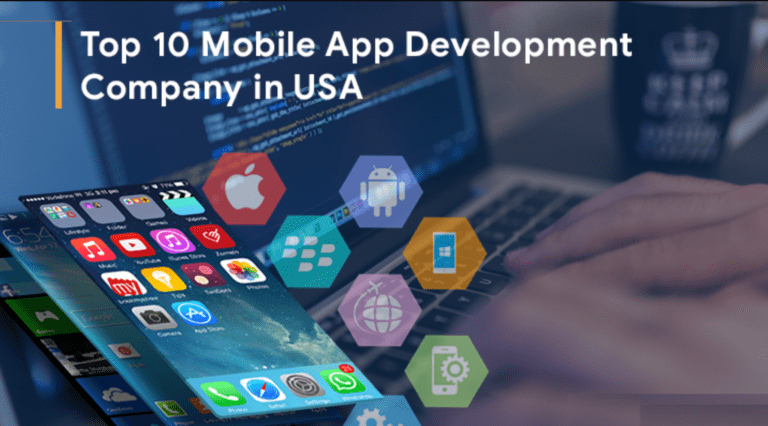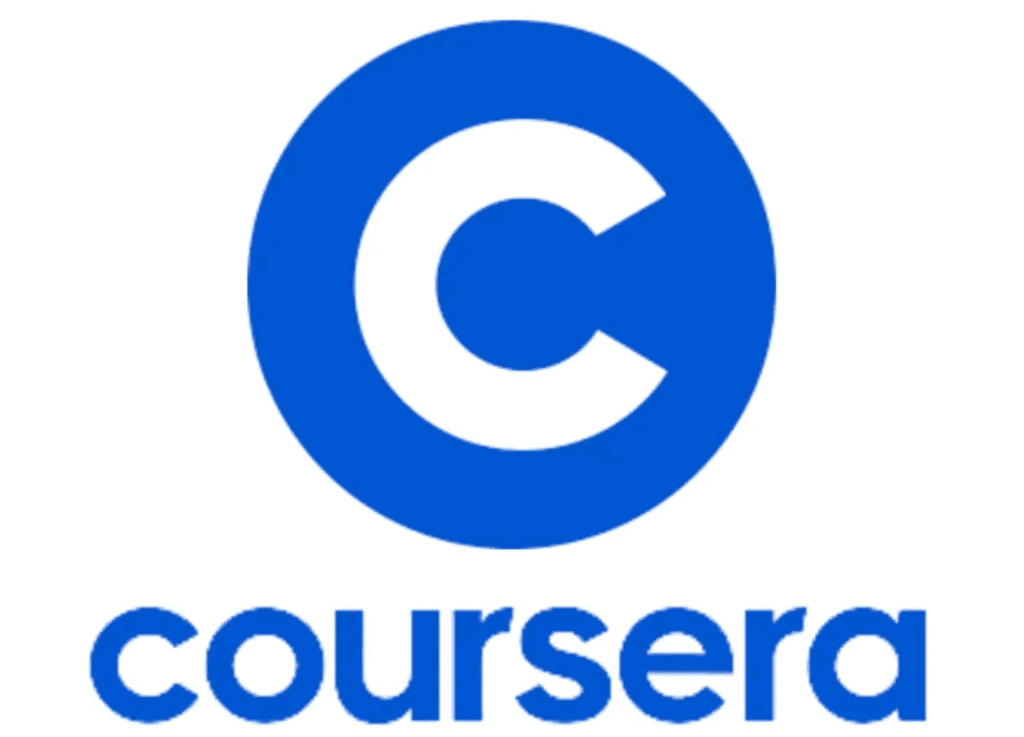
Is it worth getting an online learning subscription?
Are you looking to further your education or develop your skills to advance your career? Maybe you missed the chance to get a degree when you were younger and now that you have some spare time you finally want to study for one? In this article, I am going to review one of the most popular online learning platforms – Coursera. I’ll talk about how it works, its key features and pros and cons, the quality of courses and pricing, and help you decide if it’s worth it. .
Pros and cons of Coursera
Pros
- A wide range of subjects are available, including computer science, business and design.
- Over 7,000 courses in the library
- Various levels of qualification from short beginners courses to full length master’s degrees
- Courses available from top tier institutes
- 7-day free trial on Coursera Plus subscription
- Courses in many different languages
- Different pricing models for different needs
- About 1,700 free courses
- Low prices on Coursera Plus subscriptions.
- You can get a certificate when you complete the course.
- Flexible Schedule – Learn when you want.
- It is possible to apply for financial aid or scholarships.
- Hands-on learning approach
- Can download courses for offline learning.
- High quality courses taught by experts in their fields
Speed
One of the biggest benefits of taking a class on Coursera is that it won’t take you long to do so.
Although the student experience isn’t quite the same as if you were taking classes on campus, you can progress much faster and graduate with a full degree faster than if you were taking classes the traditional way. (And it’s a lot. It’s also cheap to boot!).
That said, you can take longer to complete your degree if it works best for you and your schedule. Also, you won’t need to leave your hometown or quit your job to get a degree or complete a course. Coursera’s flexibility really can’t be overlooked.
Major course selection
There are thousands of courses on Coursera that you can choose from. You’ll find classes in almost every area of interest, though there are naturally a few niches that dominate the platform (like business and technology). You can also enroll or audit some courses for free.
Expert level instruction
My personal favorite feature of Coursera – and one that I’ve referenced multiple times in this Coursera review – is that you’ll be learning from instructors who really know their stuff. This is not true with all MOOCs. In fact, many include classes taught by true novices or people who don’t necessarily have a background in the subject they’re teaching.
As a result, you may not be able to learn the material as well as you would like. Not so with Coursera. Coursera includes courses taught by professionals so you don’t have to worry about cut-rate tuition.
Short but sweet assignments and lectures
Another fantastic feature of Coursera has to do with how video assignments and lectures are structured. For the most part, the courses are well organized and engaging.
The instructors are very knowledgeable in their respective fields and the science video lectures are short (most are less than half an hour long), you will be able to travel through the lecture to get your main points – And then move on with yourself. Busy day.
Interactive platform
I’ve taken classes on other course platforms before, and what I’m not crazy about is that many platforms are inactive.
You take class on your own time, on your own terms, and while this is great for scheduling purposes, it makes it very easy for you to go into autopilot while taking class.
Not so with Coursera. You’ll be able to move through course content quickly and easily, but you’ll also be able to interact more with the content and with fellow learners and instructors. While the discussion boards on Coursera leave something to be desired – I’ll get to that later – there are plenty of opportunities to work with peers on assignments, complete quizzes, and talk to your instructors about the material.
Certificates
Coursera is one of the few online course platforms that will allow you to earn certificates that can actually do something for your career. Although many platforms have a certificate feature, most of the time, these certificates don’t really mean anything and don’t lead to any kind of advancement in the field.
A Coursera certificate, though, can help open new doors. It can transfer to college for credit, especially if you’re doing a master’s track or degree course. The recognition of these classes continues to increase as more universities join the platform.
Cons
- Not as many lifestyle courses as other online learning platforms offer.
- A few courses are out of date.
- Higher-level courses can be expensive, though still cheaper than on-campus.
Application process
One of the most frustrating features of Coursera for many students is the fact that you can’t choose a course, pay, and enroll immediately. You will need to apply and then be admitted to a specific program.
It involves a bit of a waiting game. While this is still a fraction of the time it would take you to apply and then get into a typical university, it is still a disadvantage for many students to consider.
Not the best discussion boards.
Many MOOCs offer discussion boards so that learners can communicate with each other and with instructors about the course and related topics. While most Coursera courses offer this feature, most Coursera course reviews claim that they really miss the mark. This is especially true in large classes that can be taken at any time.
An unfortunate reality of taking a class on Coursera — as with many other online courses and platforms — is that you’ll have limited interaction with your instructors. If you’re taking a long course on Coursera that requires you to log in at set times, you may have better luck with your interactions with your instructors, most of the time. Sometimes that would be best.
You won’t always get feedback either. While you can upgrade and pay for features assigned by rank, it’s not always something you’ll be able to get (at least not in depth). It’s not a completely comprehensive system, and you won’t necessarily get the input you want about your assignments.
Coursera Review: What is Coursera?
Coursera is an online learning platform that provides students around the world with affordable access to thousands of courses, certificates and degrees from leading companies and world-class universities including Yale, Imperial College of London, IBM and Google.
Coursera was founded in 2012 by two Stanford professors who decided there was a gap in the market for a new online learning platform. Coursera quickly became a popular choice for learners thanks to its affiliations with prestigious institutions. These include Stanford University, University of Michigan and Johns Hopkins University. Combining these accredited universities with a wide range of courses means that Coursera has now become one of the most popular online learning platforms.
The difference between Coursera and other learning sites is that Coursera is able to offer full degrees from universities around the world, accessible to anyone. They boast over 7,000 courses ranging from short courses that take just 4 weeks to bachelor’s and master’s degrees that take six years.
How does Coursera work?
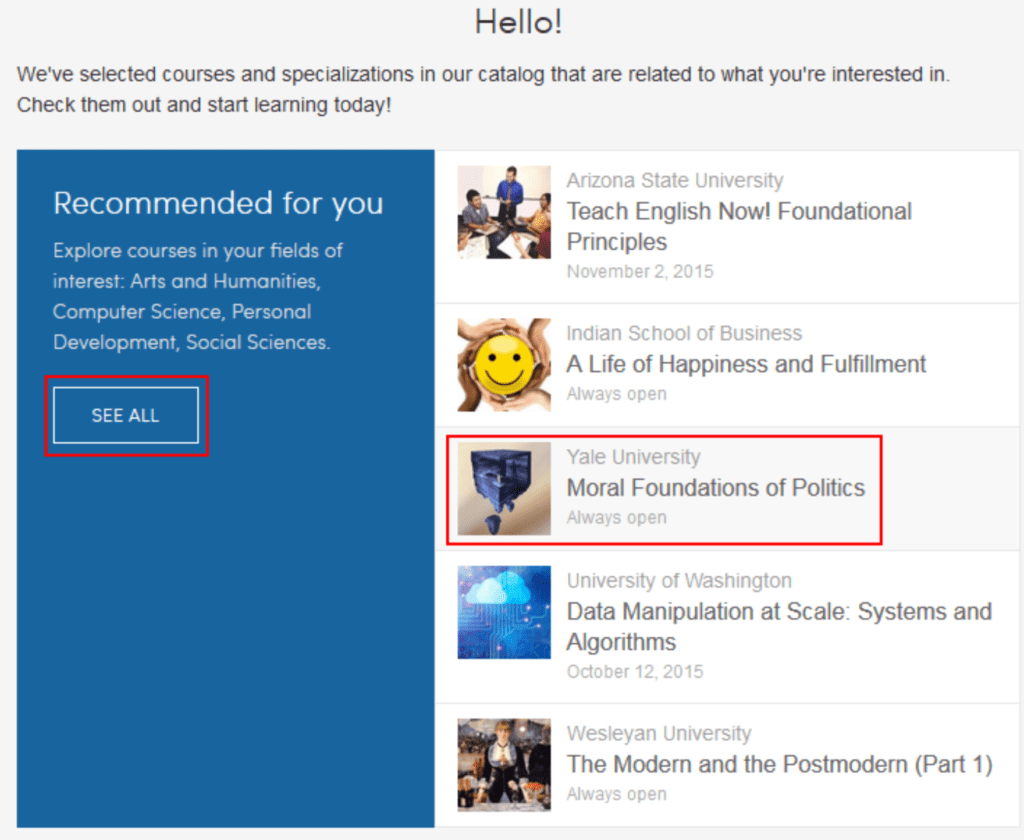
Coursera offers courses taught by experts from 250+ leading universities and companies around the world. Currently, the catalog has more than 7,000 courses divided into eleven categories: Data Science, Business, Computer Science, Personal Development, Information Technology, Language Learning, Health, Math and Logic, Social Sciences, Physical Science and Engineering, and Arts and Humanities
At Coursera, you learn skills that can help you achieve your career goals and earn a certificate at the end of each paid course. There are also hundreds of free courses, plus you can get started with a free trial.
What I love about Coursera is that you can learn at your own pace. You get on-demand lectures for your computer or cell phone and watch them on your schedule.
Search the Coursera course catalog
Your starting point for finding a course of study on Coursera is the course catalog. This includes certificate and degree courses recognized by universities. Coursera divides its courses into five categories:
- Courses: Simple, automated and peer-graded courses with a Coursera certificate upon completion
- Specializations: A group of courses designed to help you master career skills, incorporating practical projects.
- Professional Certificate: Job skills training to help you gain experience or prepare for industry certification
- Master’s Track Certificates: Courses that give you career credentials and count toward an online degree, including real-world projects
- Degree: Modular degree learning, allowing you to earn your degree from the comfort of your own home and at your own pace.
Each list has a colored label to help you see at a glance what category a particular class falls under.
Coursera courses
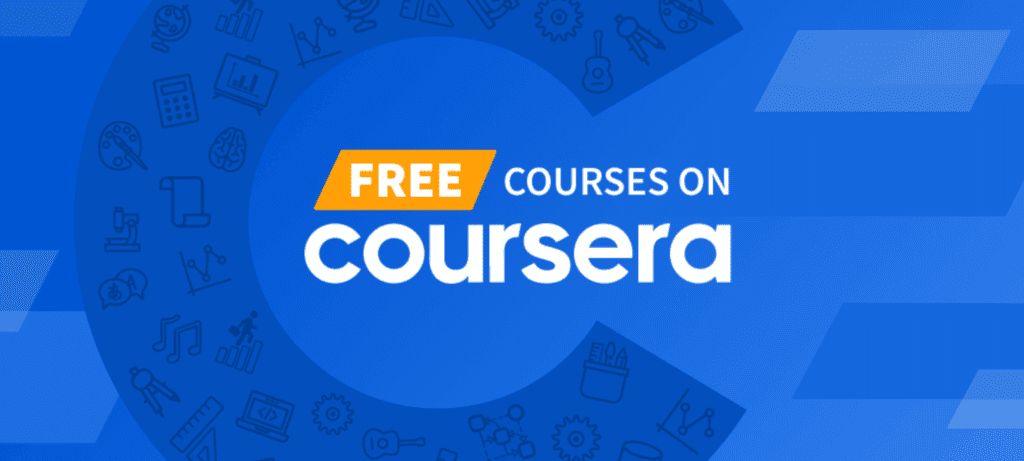
What types of courses does Coursera offer?
Coursera isn’t just for those who want to earn a degree in a traditional subject. The platform has a lot of choices when it comes to courses and all of them are from recognized institutes.
Guided projects
- Average time: 1-2 hours
- Price: From $9.99 per month
- Good for: Learning work skills quickly
Guided projects are intended for people who need to learn and master work-related skills in hours. This is a learning experience where you use a tool called Rhyme to work on a project in a virtual workspace.
Coursera for Business (B2B)
With 90% of corporations now using e-learning, high-quality enterprise online learning solutions are highly sought after in the industry. The corporate e-learning industry is showing massive growth of 15% per year, and this type of growth is also evident when you look at Coursera for Business.
Coursera’s enterprise business saw 100% year-over-year customer growth in 2019. It is powered by partnerships with organizations such as MasterCard, Southwest Airlines, Adobe, and 60 other Fortune 500 companies. Coursera seems poised to become the industry leader in corporate e-learning, so what better time to review Coursera for Business as a solution for enterprise users.
What is Coursera for Business?
Coursera for Business is a corporate e-learning service from Coursera. It aims to provide corporate training and workforce development through online courses. Through Coursera for Business, employees have access to over 3,900 top university learning programs, offering university-backed certificates upon graduation.
How does Coursera for Business work?
With Coursera for Business, corporate employees have access to nearly 4,000 online classes that they can use to build new skills and knowledge. Employees also have access to projects, graded assessments and quizzes, while managers can track employee learning progress and provide feedback when needed.
The Enterprise plan, which is for organizations larger than 100 employees, brings some additional features to the table:
- Industry expertise insights and benchmarking from Coursera
- Course recommendations for employees
- Customer Success Managers
- LMS Integration (Degree, Cornerstone, Cross Knowledge, Success Factors)
- API integration
How much does Coursera for Business cost?
Coursera for Business has two different payment plans: Team, and Enterprise. The Team plan costs $400/user/year. The Enterprise plan, aimed at organizations with 100+ employees, offers several additional features and costs less per user than the Team plan. However, the true value of the enterprise is arrived at after negotiation.
Courses
- Average time: 4-12 hours
- Price: Free
- Good for: Learning some skills and acquiring new knowledge
The Coursera catalog currently has about 1,700 free courses. With free courses, you get access to all the content, but if you want to get a certificate or access graded assignments, you have to pay extra. Some courses are very short, while others can take weeks or even months to complete.
Specializations
- Average time: 1-3 months
- Price: From $39 per month
- Good for: Mastering a particular skill
Specializations are a series of related courses designed for people who are already working in a particular industry and need additional knowledge to support their career. Some specializations include three courses and take a few months to complete, while others include more than ten courses and take up to a year to complete.
Professional Certificate
- Average time: 1-6 months
- Price: $39 per month
New skills for in-demand careers.
A professional certificate is a selection of courses chosen to help people advance in their business. If you need to develop a specific skill to get a promotion, or want to plan ahead for your career, professional certificates are a great way to do so.
Master track certificates
- Average time: 4-7 months
- Price: From $2,000
- Good for: Earning credit toward a degree and university-issued certificate
Master track certificates are intended to help learners earn degree credit through a flexible and interactive format. Master’s track certificates are created from sections of master’s degree programs at top universities. These include team-based learning, expert instruction and feedback, and collaboration with peers. If you enroll in MasterTrack Certificates, you’ll also be able to create work samples and demonstrate your skills through real-world assignments and projects.
Degrees
- Average time: 2-4 years
- Price: From $9,000
- Good for: Earning a bachelor’s or master’s degree
Coursera offers bachelor’s and master’s degrees from some of the world’s leading universities. All programs are 100% online so you can earn your degree anytime and anywhere in the world. Coursera offers bachelor’s degrees in computer science, marketing, business administration, and applied arts and sciences. and master’s degrees in computer science, information technology, engineering, data science, MBA, entrepreneurship, public health, public policy, international relations, accounting, finance, and more. If you complete a Master’s Track Certificate, this can count towards degree learning.
Coursera price
How much does Coursera cost?
Coursera has a lot of free courses, however, if you want to get a certificate and have full access to the courses, you have to pay for it. Courses start as low as $39. At this price, you don’t just get the course. You can also access mobile learning (learn anywhere as long as you have a compatible device), technical support, a learning community, graded assignments, feedback from teachers, and certificates (for sharing on LinkedIn Best for!).
Coursera Plus Subscription
Coursera Plus is a subscription plan for unlimited learning. If you want to enroll in several courses or specializations throughout the year, then this is a great option for you. A Coursera Plus subscription includes unlimited access to more than 7,000 courses, guided projects, specializations, and professional certificate programs, including business, data science, health, computer science, personal development, and more. Over 90% of all Coursera courses are included in the Coursera Plus subscription, making it an already affordable price. However, master’s track and degree programs are excluded. With Coursera Plus you will receive a certificate for each course you take.
How much does Coursera Plus cost?
Coursera Plus offers three subscription plans.
Single Learning Program – For those who want to learn a specific skill or subject and earn a certificate.
Price: $49 – $79 a month
involved in:
- Access to all courses within the learning program
- Upon completion of the certificate
- Coursera Plus Monthly – For those who want to complete many courses and get a certificate in a short period of time.
- Price: $59 a month
involved in:
- Access to 7,000+ courses and specializations
Unlimited certificates
7-Day Free Trial (Cancel Anytime)
Coursera Plus Annual – For those who have long-term learning goals and plan to complete several courses throughout the year.
- Price: $399 a year ($33.25 a month)
- Access to 7,000+ courses and specializations
- Unlimited certificates
- 7-Day Free Trial (Cancel Anytime)
- 14 day money back guarantee
Coursera Free Trial
Coursera offers a 7-day free trial on a Coursera Plus subscription. It’s a good idea to try out the platform before becoming a paying member. A free trial allows you access to all course content. If you do not cancel the trial before it ends, you will be charged for the subscription and will not be eligible for a refund.
Coursera Certificate
You can earn a course certificate for most Coursera courses if you complete and pass the course. You will also have to pay the certificate fee. If you’re approved for financial aid, you’ll be able to get a certificate from Coursera for free.
If you decide to take a free course in audit mode, but then decide you want to earn a certificate, you’ll be able to upgrade at any time during or after the audit.
There are some courses that do not offer certificates, but in my experience, this is very rare.
After paying for a course, you will have 180 days to complete it and receive a certificate. After that, your payment will expire and you will have to pay again to get the certificate. This deadline may vary if you are taking a course as part of a specialization.
Is Coursera free?
Coursera isn’t free, but there are about 1,700 free courses available on the platform. These are courses from top universities, and many of them are really good.
What can u study on coursera
Each main subject is broken into subtopics, giving dozens of possible course options. Whether you want to learn about health and wellbeing or computer algorithms, there’s an online learning program for you.
Many of the subject areas offer both single courses and the option for full degrees, and you can see which courses are part of a degree program on the course listings page. Language courses are generally delivered by institutions based in the country of origin.
Course listing pages include trending and popular courses, certificates, and programs, just in case you’re not sure where to start.
How Coursera Works
The typical course is structured around video lectures, online quizzes, readings and practical exercises. Courses last approximately 4-12 hours, and can be completed in one week.
The next level of the above courses is called “specialty”. These are, in fact, multi-week courses that focus on a specific skill. They last 1-3 months.
In addition, they have professional certificates, which last for 6 months. These are mainly focused on enhancing career potential.
A step above: They offer master’s track certificates, which are courses taken through accredited programs (such as the University of Michigan).
Then, finally, they also offer full degrees.
It is a huge platform with different levels of engagement. I will examine them in more detail later in the article.
For now, let’s keep going!
Who teaches at Coursera?
Because Coursera courses are affiliated with large institutions (such as the University of Michigan), classes are typically taught by professors affiliated with big-name colleges.
For example, The Science of Wellbeing is taught by Laurie Santos, professor of psychology at Yale University, who hosts a popular podcast called “The Happiness Lab.”
The caliber of professors at Coursera puts it above Skillshare (which focuses on teaching instant skills), Masterclass (which uses celebrities to teach all its courses), and Mindvalley (which relies on self-help personalities). Holds above in terms of capacity.
Coursera has probably the best teaching depth of any online platform I’ve seen. The instructors are all high-quality, respected professors, and the classes they teach can actually lead to the completion of accredited degrees.
This is something that is unique to Coursera, and should be kept in mind by any prospective student.
What are the best free courses on Coursera?
- Brand Management: Business, Brand and Behavioral Settings: University of London
- Introduction to Statistics: Stanford University
- Introduction to Psychology: Yale University
- Machine Learning: Stanford University
- Native Canada: University of Alberta
- Writing in Science: Stanford University
- The Science of Wellbeing: Yale University
- Financial Markets: Yale University
- Stanford Introduction to Food and Health: Stanford University
- Successful Negotiation: Essential Strategies and Skills: University of Michigan
How to enroll in a Coursera course?
If you want to take a course on Coursera, you first need to select an enrollment option (often both free and paid options are available, depending on the course).
- Course Certificate – You take the same course for the certificate.
- Specializations – You enroll in a specialization, a series of related courses that will help you master a subject of your choice. Specialization courses include a free trial, and you can pay for all courses outright or pay by course.
- Coursera Plus – You can sign up for a Coursera Plus membership that provides unlimited access to over 90% of all courses on Coursera. This is the best option in my opinion. Coursera Plus also comes with a 7-day free trial.
- Financial Aid or Scholarships – You can apply for financial aid or scholarships. Most courses on Coursera offer this option.
- Audit Only – You can choose to audit courses and access the course content for free. You won’t get your work graded and you won’t be able to submit some assignments. You will also not receive a course certificate.
- Full Course, No Certificate – You can do the full course without getting a certificate for free. If you decide to get a certificate, you will be able to pay for it at any time during or after the course.
Once you choose one of the above options, go to the course information page and click on Enrollment. After doing this, you can start taking the course at any time. If you decide to take a break, don’t forget to reset your assignment due date afterwards.
After completing a paid course, you will no longer have access to its paid content. You will still have access to free content, including downloading transcripts and videos.
How to find a course to take on Coursera?
Coursera has a great search function, so it’s easy to find which course to take. You can browse Coursera’s catalog by subtopics and subjects. Generally, specializations are listed first, with subsequent sessions preceding individual courses.
The catalog lists all Coursera specializations and courses, even those not currently open for enrollment. However, you can use filters to find courses that are either starting soon or are currently available.
Are Coursera courses good?
I’ve taken my fair share of online courses on various platforms, and I can confidently say that Coursera courses are really good (at least the ones I’ve taken). All courses are offered by the world’s top universities, and the standard is usually very high. Of course, once in a while, you may find an outdated course, so I recommend always reading reviews before enrolling.
Are there deadlines on Coursera?
Most courses on Coursera have deadlines that are developed based on a personal schedule that begins after you enroll in the course. If you miss a deadline, it usually won’t affect your grade or your ability to get a certificate. You can also use the Reser Deadlines option to move to a new course schedule.
Degree programs have specific start dates and strict deadlines for assignments that cannot be rescheduled and may include late penalties.
Does Coursera offer refunds?
It depends. If you purchased an individual course or a Coursera Plus annual subscription, you can request a refund within 14 days of your payment. However, you cannot get a refund if you have already received a course certificate. Also, if you have subscribed for a course or specialization, your payments are non-refundable, but you can cancel your subscription to avoid any future charges.
Are Coursera courses accredited and accredited?
Most short Coursera courses are not accredited. For me, this is not a big deal, as I use Coursera and other learning platforms to acquire knowledge rather than credentials. However, if you are interested in earning a credential, you may want to check out Coursera’s degree programs and master’s track certificates.
Is there an age limit for Coursera?
Learners must be at least 13 years old to take courses on Coursera (some European countries have a higher age limit, see the Coursera website for more information). If you are over 18 years of age
So are Coursera certificates valuable and worthwhile? Well, that depends Who you ask I personally don’t care much about them, because for me Coursera is about learning new skills and not about getting a piece of paper. I don’t think you can get a job with a Coursera certificate alone, but the skills you gain by taking the courses will definitely make it easier for you to advance in your career.
Ally, you must pay to get a certificate from Coursera. However, if you complete a course during the free trial, you will be able to earn a certificate. Also, Coursera sometimes runs promotions and offers free certificates for some courses.
Does Coursera offer financial aid?
Yes. If you want to get a certificate but can’t afford to pay for it, you can apply for financial aid or scholarships. If your application is approved, you will be able to access all course materials and complete assignments required to earn the certificate. Some courses do not offer financial aid, but most do. While your application is being reviewed, you cannot start a free trial, otherwise, the application will be cancelled.
If you wish to apply for financial aid for a specialization, you will need to submit separate applications for each course. Financial aid is not transferable between courses.
Is Coursera legit?
Coursera was founded over a decade ago and is now considered one of the most popular online learning platforms. So to answer this question, yes, Coursera is legit.
Do Coursera courses count for credit?
No, short Coursera courses do not count for college credit. However, there are master track certificates that do.
Is Coursera worth paying for?
Even though there are nearly 2,000 free courses available in the Coursera catalog, I still think it’s worth paying for a Coursera Plus subscription. Thus, you will get full access to almost all courses and specializations and get certificates for each of them.
How do you get discounts on Coursera?
Coursera does not run promotions very often. The best way to get a discount on Coursera is to purchase an annual subscription to Coursera Plus for $399, which will save you over $300 (a monthly subscription costs $59 per month, which reduces to $709 per year).
Is Coursera free for university students?
Coursera offers The Coursera for Campus Students plan that allows college and university students to access unlimited guided projects and one course per year for free. This plan is available to full-time, part-time, community college, and university students who have a university or college-issued email address.
Can I get a certificate from Coursera after doing an audit?
Yes, you can upgrade anytime during or after the audit to get a paid certificate.
Can I complete a Coursera course in 7 days?
It usually takes at least a few weeks to complete a course, but you can do it faster if you want.
Can I use a Coursera certificate on my resume?
Yes, you can use a Coursera certificate on your resume or college application to showcase your skills.
Is Google Coursera Free?
No, Google Professional Certificates on Coursera are not free. IT Support, User Experience Design, Data Analytics, and Project Management certificates cost $39 per month with a Coursera subscription.
Coursera Alternative
Coursera vs. Udemy
Both Coursera and Udemy are good online learning platforms, but in my opinion, Coursera is better than Udemy. While Udemy has more courses, Coursera’s courses are better structured. Coursera certificates are also more valuable because they are offered by top universities.
Coursera vs. Masterclass
Masterclass is a true heavyweight in the online learning game. I really like their platform (see my Masterclass review here), but they don’t have the same specialty as Coursera.
MasterClass is all about learning from some of the biggest names in your respective fields. I’m talking about Usher, Neil Gaiman, Natalie Portman, Helen Mirren. These are the big names who sit down with you for a few hours and teach you what they have learned in a lifetime.
Most of these courses are craft-based — like writing, cooking, gardening; But some are more philosophical, like how Neil deGrasse Tyson teaches critical thinking. The classes are very engaging, but they are more of a hybrid between fun and education than rigorous education. They are like a documentary series on Netflix – engaging and informative. It is very easy to spend 6 hours on a masterclass.
In contrast, Coursera is all about teaching you hard skills. Coursera classes are accredited (MasterClass is not), and offer you a certificate upon completion.
Prices also vary considerably. Masterclass runs $180 for the year while Coursera’s annual subscription costs $399. This is more than double.
But that’s a bit of an apples and oranges comparison. Masterclass is fun. Coursera helps you build a career.
Coursera vs Skillshare
Skillshare is a platform that is a little closer to Coursera than MasterClass. just a little. Coursera focuses on helping you learn skills that can help you in your career (hence the name Skillshare), though it doesn’t just focus on hard skills. You can learn coding or baking or photography or many things.
The difference with Skillshare is that it’s not college professors teaching you these courses. They are not even celebrities. Instead, it’s a grab bag of teachers who are great in some respects and kind in others. There’s a ratings feature to help you sort the wheat from the chaff, but curation isn’t SkillShare’s selling point.
Instead, the selling point is that these classes are short. Like, 30 minutes to an hour shorter. It’s the reverse of Skillshare: learn a new skill in an hour.
how much does it cost? $144 for an annual subscription. It’s less than half the price of Coursera.
But, with Coursera, you’re getting accredited courses taught by professors affiliated with major college institutions. This is the selling point.
If you want to learn a skill quickly, try Skillshare.
If you want to complete an accredited course at a relatively low cost, Coursera is the right choice.
Coursera vs Mind Valley
Mind Valley is a very different learning platform than Coursera (I wrote everything you need to know about it in my Mind Valley review). Mindvalley is about self-improvement and self-help, and it caters to a very different audience than Coursera.
Mindvalley has around 30 courses that revolve around daily learning, videos, lessons and teacher check-ins.
These classes can be relatively practical, such as Ken Honda’s “Mini EQ”, John and Missy Butcher’s Life Book, or Jim Quick’s Super Brain.
Other courses can be more spiritual, such as “Awaken the Species” by Neale Donald Walsch – a famous spiritual author.
Some classes can be downright unusual, like Vishen Lakhiani’s “The Silva Ultramind” method. This class teaches that you have latent ESP powers.
These courses are an exact reflection of Mindvalley’s classes. It’s very different from Coursera, right? If you’re looking to balance your chakras, enhance your meditation, or learn how to consciously connect, you should check out Mindvalley. Be warned, the price is $499 per year for 30 classes.
Coursera, of course, is very different. Coursera focuses on hard skills that are linked to accredited universities. Adherents of the scientific method will breathe a sigh of relief. With 3,000 courses for $399, Coursera Plus is less expensive and has more content than Mindvalley.
Coursera vs AdX
EdX is probably one of the closest platforms to Coursera. EdX offers free college courses (that you can pay for and get a certificate of completion) on a variety of topics from top-ranked institutions like MIT, Harvard, and Wellesley.
The class is free if you don’t want a certificate. If you want a certificate, it will set you back about $50.
The difference between EdX and Coursera is primarily the amount of content. EdX is significantly smaller, and does not offer a degree program. Instead, EdX feels very much like a “non-profit” (but I don’t know if it’s really a non-profit) because it’s trying to make higher education more accessible to everyone.
On the other hand, Coursera is a bigger and more robust platform. It has 4000 courses. Additionally, Coursera is more career oriented with classes like coding. EdX has language classes, religion classes — it’s a more liberal arts-based learning platform.
Coursera vs Great Courses
The Great Courses is the oldest learning platform on this list, having started over 30 years ago. At that time, you would purchase courses that were delivered via video. Now, you can buy them online and watch them on your computer.
Great Courses Courses are strictly video lectures and supplementary readings. Classes are usually about 24 hours (quite long) and usually cover material at an intro college course level. Classes are usually taught by college professors, but other professionals in their fields are used from time to time.
Unlike Coursera, these courses do not provide certificates and do not have quizzes and grades. They are strictly informational. The closest analogs to them I can think of are the History Channel documentaries. They cover the material well, and they are academic in nature.
Standalone courses vary in price, but are generally in the $50-200 range.
You can purchase The Great Courses Plus – their subscription service – for $360 a year, which gives you unlimited access to thousands of their courses.
It is not much lower than the price of Coursera.
Coursera, though, is more practice-oriented than The Great Courses — offering skills-based and educational classes that lead to certificates upon completion.
Is there a Coursera subscription?
Yes! You can get access to projects, courses, specializations, and Professional Certificates through Coursera Plus — Coursera’s subscription service, which costs $59 a month or $399 for the year if you pay all at once.
What is coursera plus
The Coursera Plus subscription gives you access to the thousands of courses, specializations, and certificates for a flat price. PLUS, each course you complete gives you a certificate — no extra fees required!
Coursera Plus allows you to take as many courses, projects, specializations, and Professional Certificates as you like.
As mentioned, it costs $399 annually, or $59 per month.
This gives you access to 3,000+ courses, all taught by professors attached to major universities like Yale, Arizona State, Michigan, Duke, and many others.
What’s included with Coursera Plus?
Curious about what you get when you sign up with Coursera Plus? Me too! It’s a little confusing to figure out what all you have access to.
Here’s what you get when you subscribe to Coursera Plus.
- Courses. You get access to over 3,000 courses when you sign up for Coursera Plus. These have some big name courses taught by professors from heavy-hitting universities like Yale and Duke.
- Guided Projects. You get access to 100 projects — the short, 1-4 hour projects that help you nail a new skill in record time.
- Specializations. You get access to over 1,000 specializations — those 3 month intensives that help you go deep into critically needed skills.
- Professional Certificates. You get unlimited access to eleven certificates. That may not sound like a lot, but remember: these are 6 month (or more) programs that require an intense amount of dedication. They’re basically mini degrees.
How much does Coursera Plus cost?
Coursera Plus has two price points, depending upon if you pay monthly or annually.
If you pay annually, you pay $399 up front. That factors out to $33.25 per month.
If you pay monthly, you pay $59 per month. That factors out to $708.
So you’re paying almost twice the price if you pay monthly. But, you have the flexibility of using it for only as many months as you need. It’s up to you to decide how you want to swing it.
Can I try Coursera Plus for free?
Yes! You can sign up for a 14-day free trial of Coursera Plus.
This way, you can decide for yourself if Coursera Plus is right for you. It’s a great way to dip your toes into the program and possibly grab a course or two without a financial commitment. After your 14-day trial is up, you’ll be auto-enrolled at the annual rate — $399.
You can also get a free trial if you enroll at the monthly rate of $59.00, but this free trial is only good for 7 days. Decide for yourself which one you’d rather do!
Can I get a refund on Coursera Plus?
Yes! You can request a refund within 2 weeks of a payment for either Coursera Plus or a Coursera course. It’s pretty easy. You go to “My Purchases,” then go to the item you’d like refunded, find the “refund deadline” column, and then click “get refund.”
Is Coursera Plus a good deal?
Coursera Plus can be a great deal! It all depends upon how many courses you take.
Let’s take that $399 annual number. If you’re taking a specialization that costs $69 a month, and it runs 3 months long, then the specialization would cost $207.
Not quite there yet.
Take another at the same price point, and now you’re looking at $414 vs. $399. So the breakeven point for specializations is around 2 specializations a year.
If you look at professional certificates, the prices can be even higher — up to $89 a month for 6 months. If you take two of those, that would cost $1,068 if purchased separately. When you use Coursera Plus, that’s a savings of $669.
When it comes to individual courses, it’s best to look at it month to month. Certified Courses are anywhere from $30-$100 each, so Coursera Plus is worth it if you take 1 a month.
Can I get a degree from Coursera?
Yes you can!
There are degree programs from Coursera that are offered in partnership with major universities such as University of Penn and The Imperial College of London. These degrees take anywhere from 2 years to 4 years to complete, and start at $9,000.
Can I use Coursera Plus to get a degree?
Unfortunately, no.
Coursera Plus is only for Guided Projects, Classes, Specializations, and Professional Certificates. You can’t do the MasterTrack program or the Degree programs with Coursera Plus, though you are welcome to purchase them separately.
Review Conclusion:
Coursera is an outstanding MOOC website that has earned its place as a leader in the industry.
For taking individual online courses or groups of courses (specialties), I consider Coursera to be one of the best websites out there. All their courses are fully accredited, and all certificates are issued by internationally recognized universities. Well-designed quizzes, high-quality video lectures, and relevant reading material are what I expect from all Coursera courses, and I have yet to be disappointed. The opportunity to audit most of Coursera’s online classes for free is also a wonderful opportunity for many students.
As for Coursera’s new micro-credential solution, the MasterTrack programs, my personal decision becomes a bit more complicated. On the one hand, master’s track programs offer degree-level knowledge for a fraction of the cost of an actual degree. But, on the other hand, competitors like edX offer similar programs significantly cheaper and more content-rich. So, before investing in a Coursera master track program, I would recommend that you first check out platforms such as edX. Their prices can be more competitive depending on specialization.
The selection of online degrees available on Coursera is also one of the best out there. With competitive price points and the best universities supporting these degrees, Coursera definitely becomes one of the most attractive online degree platforms out there right now.
Overall, Coursera is worth a strong recommendation. They have the best online courses in the world, and no serious e-student can afford to miss out on their online class selection. Andrew and Daphne, the founders of Coursera, have really achieved something historic with this website. Personally, I’m excited to see what the future holds for the site.
